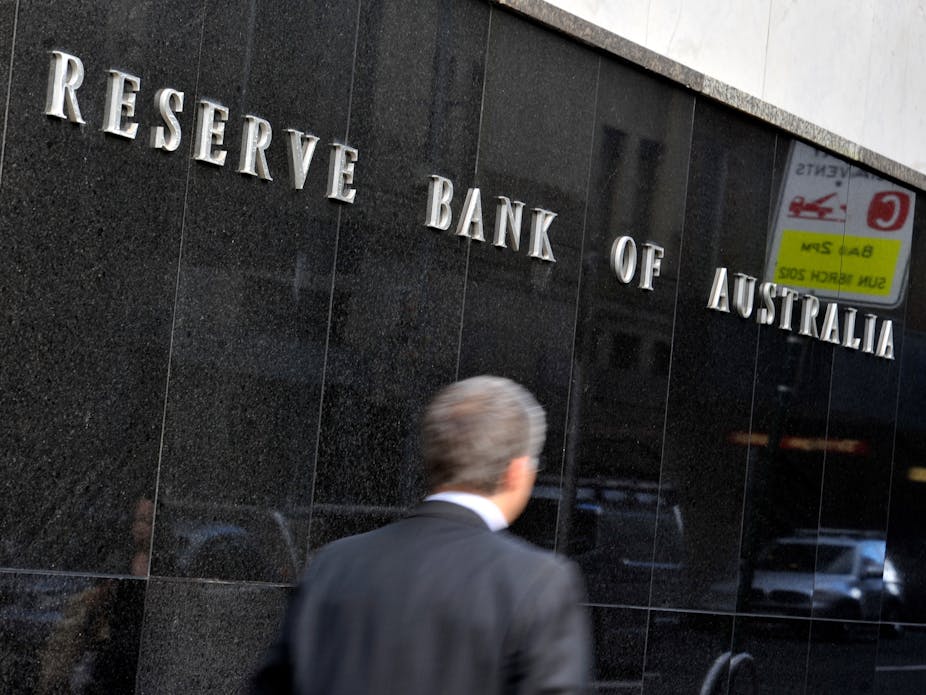Today, all eyes will be on the Reserve Bank amid speculation that the cash rate will be eased by at least 25 basis points.
The RBA has often faced pressure from politicians and business leaders to reduce interest rates. But it seems that the objectives of politicians and independent monetary policy-makers are not always in agreement. Is there a way for the RBA to arm itself against meddlesome political rhetoric?
Ben Bernanke, chair of the US Federal Reserve, announced recently that the Open Market Committee would publish its views on future interest rates. This move towards greater transparency brings the Federal Reserve into line with other central banks that publish interest rate projections, including New Zealand, Norway, and Sweden. Should the RBA adopt a similar approach?
An advantage of publishing longer-term interest rate projections is that the markets and other government departments have a clearer indication of what the future holds.
These projections are not promises; the planned path of interest rates will evolve in response to monetary conditions. Communication of the uncertainty about the plan would allow the public to gauge the odds that the current monetary strategy will require a rethink in the future.
Unfortunately, there are circumstances in which politicians and the public favour adjusting the monetary strategy to accommodate inflationary pressures, regardless of the inflation target.
The job of the independent central bank is to resist short-termism. Recently, the pressure in Australia has been strong.
“In the current economic environment, should the RBA consider it appropriate to change the cash rate, this could deliver widespread benefits for households and business - noting that a number of sectors of the economy most under strain are arguably more sensitive to interest rates”. Julia Gillard (from a speech to a business audience, Perth, April 20, 2012).
“The Reserve Bank has made the wrong call consistently and compounded those wrong calls. For some bizarre reason in this country, it’s like it is religious heresy to criticise the decisions of the RBA”. Paul Howes (talking to ABC Radio, quoted in The Australian, April 11, 2012).
And the chair of industry funds management, Garry Weaven, added further to the pressure. “At the end of the day, no-one is truly independent. If the requirements, both for the government and for the Reserve Bank, is the greatest good of the Australian people and, in particular, the specific requirements in the Reserve Act of full employment, then, you know, on independence of thought, fine, but in the end you must take account of the full picture.” Garry Weaven (talking to ABC News, AM, April 18, 2012).
The RBA would be less vulnerable to political pressure if armed with an interest rate path. Then, to be taken seriously, a critique of policy would require a new path for interest rates, justified on an alternative assessment of monetary conditions. Simple claims of “the wrong call” wouldn’t suffice.
How difficult would it be for the RBA to publish longer-term probabilistic interest rate projections? Other countries, such as Norway, have found this route to be feasible.
Closer to home, the RBA Shadow Board at the Australian National University’s Centre for Applied Macroeconomic Analysis (CAMA) currently provides long-term interest rate projections from individual Shadow Board members. The CAMA Shadow Board projections for Australia, which are not forecasts of actual RBA Board behaviour, reveal a considerably diversity of views for longer-term interest rates.
Some experts - like some politicians - think that the monetary stance ought to be looser in 12 months. Others are not yet persuaded, seeing rates likely to rise over the next year. The pledge of future fiscal surpluses has not been enough to convince these independent experts that rates will be lower in the longer term. A key advantage of using monetary policy experts on a board is their monetary policy expertise. Monetary policymakers should not be easily swayed by government rhetoric.
Longer-term interest rate projections offer the RBA a feasible route to greater transparency and enhanced operational independence from short-term political interference. An expert-based RBA Board would be a further improvement.

